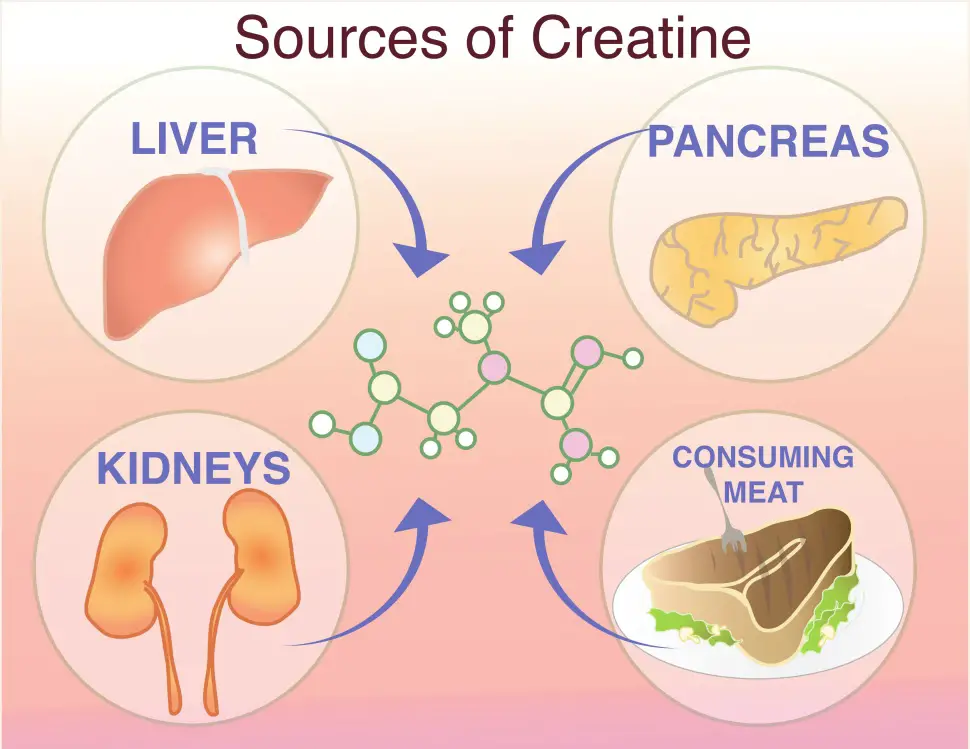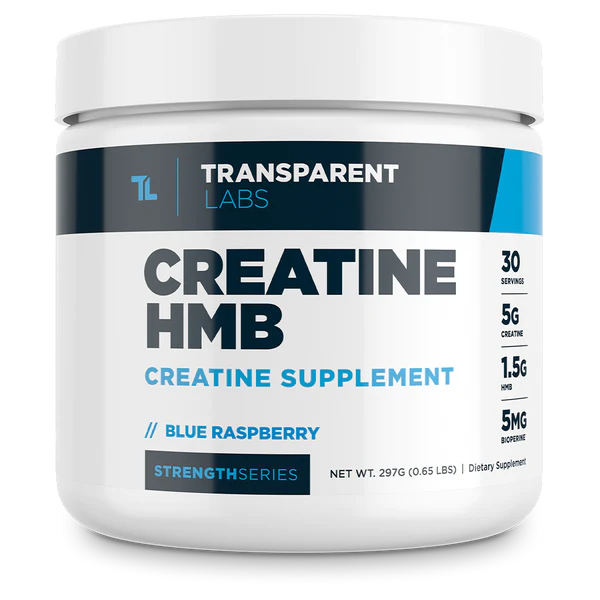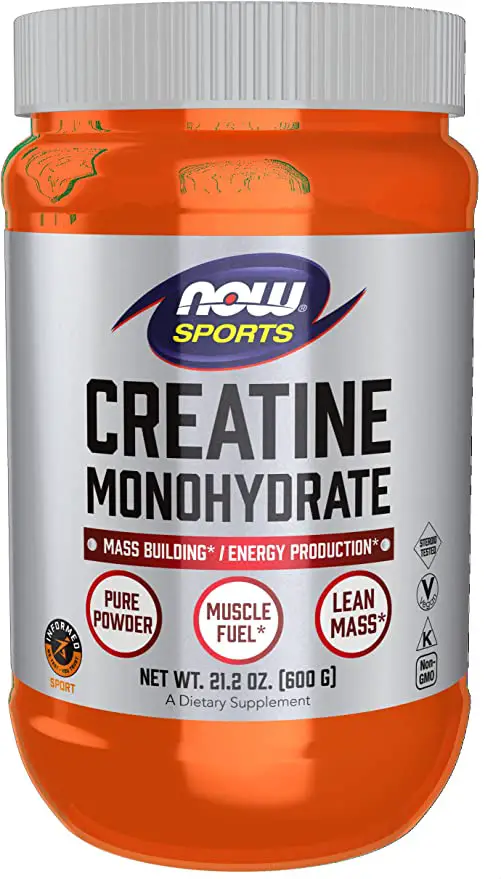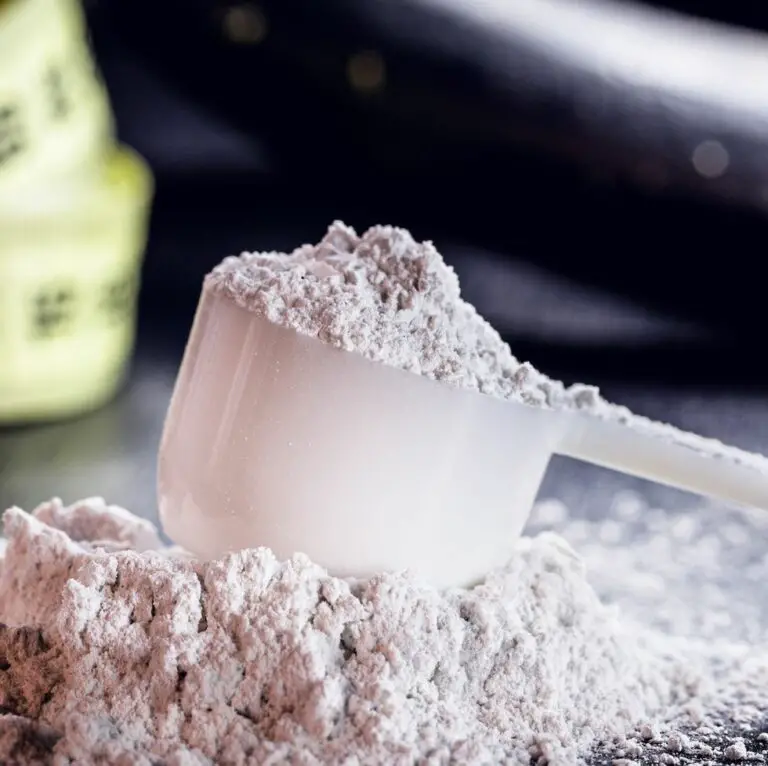
Creatine is an organic compound naturally found in our bodies, often used by bodybuilders to improve physical performance. This substance is present in a variety of foods such as meat, fish, and milk, but cannot be found in plant-based ingredients. This is why it is so important for vegan fitness enthusiasts to add this supplement (next to vegan protein powders) to their diet. But is creatine vegan-friendly?
Table of Contents
What is Creatine?
Creatine is an organic non-protein present in our bodies. Roughly half of it is produced by our liver and kidneys from a few amino acids, while the other half comes from the food we eat.
Creatine supports our muscles in the production of energy during high-intensity exercises.
It helps us lift more weight and boost our endurance, key factors for long-term muscle growth. Creatine supplements can be found in three main types: monohydrate, micronized, and alkaline. The former is absorbed slowly by our body and tends to be cheaper. This supplement is manufactured outside of our bodies from sarcosine and cyanamide.
Micronized creatine is creatine that has been reduced in size to make it easier for us to absorb it. Similar to monohydrate creatine, this supplement is produced in the laboratory. Lastly, alkaline creatine has a higher ph, can be absorbed easily, and remains stable for long periods in liquid solutions.
What are the concerns about creatine and veganism?
Half of the creatine in our bodies comes from what we eat. Unfortunately, however, a plant-based diet does not include food containing creatine. But no reason to despair! In fact, supplementing this substance is not a must for vegans, and the people that choose to add this compound to their diet are mainly athletes wanting to maintain optimal physical performance.
But are creatine supplements vegan-friendly? To put it simply, in most cases, the answer is yes.
In fact, while creatine mostly comes from animal products, the ones used for supplements are made in the laboratory. This compound can be easily manufactured by synthesizing sarcosine and cyanamide, a process that does not involve animals or animal-derived products. But there is a but. Some forms of creatine are sold in capsules which are, at times, made from bovine gelatine and tissue. In this case, creatine should, obviously, not be used by vegans.
Is Creatine Vegan-Friendly?

As we mentioned earlier, most creatine supplements are vegan-friendly. However, some capsules may be made from bovine-derived products, so make sure to avoid these and opt for a creatine powder instead.
But vegans don’t necessarily need supplements to boost their creatine levels. If you paid attention to what we mentioned earlier, you probably remember that half of the creatine in our body is produced by our kidneys and liver. In fact, this compound can be easily synthesized by our bodies whenever we provide our system with the three amino acids glycine, arginine, and methionine.
These are present in several foods, such as seeds, nuts, and beans, as well as several vegetables and fruits, including spinach, asparagus, kiwis, and bananas. Despite this, if you want to provide your body with optimal levels of creatine, supplements will be of great help
Benefits of vegan creatine sources
As creatine is found in red meat and fish, vegans and vegetarians tend to have a deficit of this compound. This is why supplementing this substance, if you are on a plant-based diet, can be so beneficial. Creatine gives us more energy during workouts, while also improving our endurance and muscle mass. This compound is also beneficial for cell signaling, helping our muscles repair quickly.
Choosing a vegan-creating source, instead of opting for food such as meat and fish or capsule supplements made from bovine-derived products, will benefit not only our bodies but also the environment. A 2018 Greenpeace report found that we would need to cut the world’s meat and dairy production in half if we want to keep the Paris Agreement on track, an international treaty whose aim is to fight climate change. Similarly, an article published by the Guardian, mentions how nearly 60% of all greenhouse gasses from food production comes from meat. This is why it is so fundamental for all of us to try our best to adopt a vegan lifestyle.
How to choose a vegan-friendly creatine supplement
Nowadays, there are several types of creatine on the market. From creatine monohydrate to ethyl ester, anhydrous, citrate, and phosphate, the choices are endless. So, what should you take into account when buying this supplement?
As a rule of thumb, while some brands may claim that their products have other incredible benefits, the truth is that, in most cases, more research is still needed. Creatine monohydrate is currently the most popular form of creatine on the market due to its many health benefits and low price. So, if in doubt, opt for this one. Here are a few extra factors to keep in mind when buying creatine.
- Form: creatine comes in several forms, such as powders, capsules, tablets, and liquids. Capsules often make use of animal-derived products such as gelatine, so make sure to avoid these. Studies also show liquid creatine is unstable and breaks down in our blood, so this is not the best choice.
- Price: some creatine supplements are overpriced as brands add nutrients such as sodium, magnesium, and other electrolytes to their product. In reality, while these substances may be good for your exercise performance; they do not enhance creatine’s effects. So, no need to pay extra.
- Quality: A good way to check whether you bought high-quality creatine is by checking if it dissolves well. If you find residue at the bottom of your glass after you drank, you may want to try to find a different brand.
Some of the best vegan creatine supplements currently on the market

Transparent Labs Creatine HMB: this brand has no artificial sweetener, color, or preservatives

NOW Sports Nutrition Creatine Monohydrate Powder: another one hundred percent vegan-friendly option.

Kion Creatine: this creatine brand uses the purest creatine monohydrate available with a 95% absorption rate.
Conclusion
Whether you want to boost your physical performance or simply maintain optimal health, creatine will surely be a great ally. If you decide to add this supplement to your diet, make sure to opt for a powder supplement as capsules tend to use animal-derived products.
Frequently Asked Questions
What is creatine and where does it come from?
Creatine is a natural compound that can be found in a variety of foods such as meat, fish, and milk and can also be synthesized by our liver and kidneys.
Is creatine typically derived from animal sources?
Creatine is found in several animal products, however, creatine supplements are manufactured in the laboratory.
Can vegans take creatine supplements?
Yes! But make sure to avoid capsules that may be made from bovine-derived products.
Are there any vegan sources of creatine?
Unfortunately, not. However, our body can synthesize this substance from three amino acids, glycine, arginine, and methionine, present in several veggies, nuts, and beans.
What are the benefits of taking creatine as a vegan athlete?
Creatine can boost your energy level, helping you improve your endurance, overall strength, as well as muscle recovery time.
How can I ensure that the creatine I am taking is vegan?
Powder creatine supplements are mostly vegan. However, when in doubt make sure to check the ingredients on the label.
Are there any side effects of taking creatine supplements as a vegan?
Creatine has some minor side effects such as stomach pain, as well as muscle cramps, strains, and pulls. However, these tend to be extremely rare, so you shouldn’t worry too much about them.



